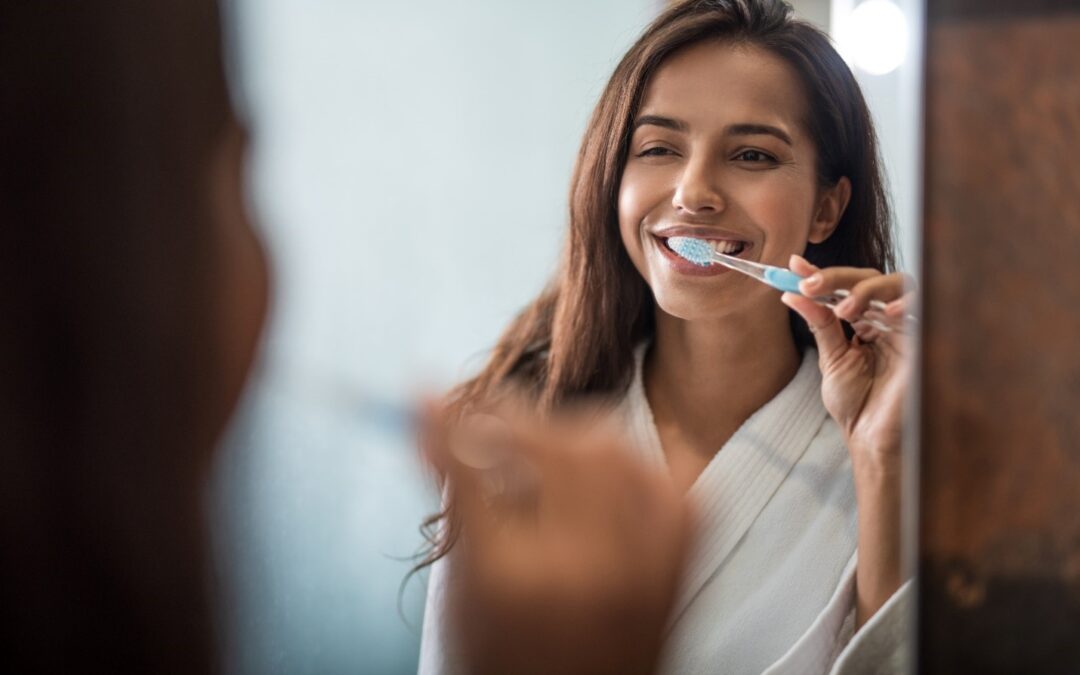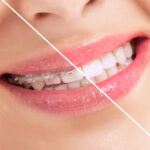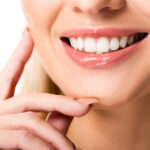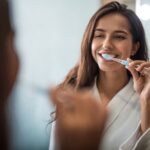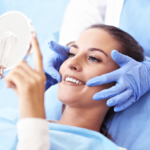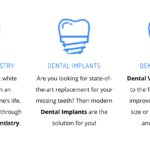Introduction to the debate – brushing before or after breakfast?
Brushing your teeth is an essential part of maintaining good oral hygiene. But have you ever wondered when is the best time to brush – before or after breakfast? It’s a debate that has sparked conversations among dental professionals and everyday individuals alike. Some argue that brushing before breakfast helps remove overnight bacteria, while others believe it’s better to wait until after eating to prevent damage from acidic foods. In this blog post, we’ll dive into both sides of the argument, discuss some helpful tips for maintaining oral health regardless of when you brush, and emphasize the importance of consistency in your dental hygiene routine. So grab your toothbrush and let’s explore whether it’s best to brush before or after breakfast!
Pros and cons of brushing before breakfast
When it comes to oral hygiene, the debate over whether to brush before or after breakfast has been ongoing. Let’s explore the pros and cons of brushing before breakfast.
One advantage of brushing before breakfast is that it helps remove harmful bacteria that have accumulated overnight. During sleep, our mouths become a breeding ground for bacteria, which can lead to plaque buildup and bad breath. By brushing first thing in the morning, you effectively eliminate these bacteria and start your day with a fresh mouth.
However, there are some drawbacks to brushing before breakfast as well. One downside is that certain foods we consume during breakfast can be acidic or sugary, which may temporarily weaken tooth enamel. Brushing immediately after eating these foods could potentially damage the enamel further.
Another disadvantage is that if you brush your teeth with toothpaste containing fluoride before eating, you’ll wash away its protective benefits when you consume food or drinks afterward.
To mitigate these issues, consider rinsing your mouth with water after eating breakfast to help remove any lingering food particles. Wait at least 30 minutes before brushing so that saliva can naturally neutralize acids and remineralize tooth enamel.
While there are advantages to brushing before breakfast such as removing harmful bacteria from your mouth, it’s important to weigh them against potential risks like weakening tooth enamel caused by certain foods consumed during breakfast. Finding a routine that works best for maintaining good oral health is key!
Pros and cons of brushing after breakfast
Brushing your teeth after breakfast has its own set of advantages and disadvantages. Let’s dive into the pros first:
1. Fresh breath: Brushing after you’ve had your meal can help eliminate any lingering food odors, giving you fresh-smelling breath throughout the day.
2. Removal of residual food particles: By brushing after eating, you can effectively remove any leftover food particles that may be stuck between your teeth or along the gumline. This helps prevent bacterial growth and reduces the risk of plaque buildup.
3. Protection against acid erosion: Consuming acidic foods or beverages during breakfast can weaken tooth enamel temporarily. Brushing afterward helps to protect your teeth from further damage caused by acid erosion.
However, there are a few cons to consider as well:
1. Time constraints: Mornings tend to be rushed for most people, making it difficult to find enough time for a thorough brushing session before heading out the door.
2. Increased sensitivity: Brushing immediately after consuming acidic foods or drinks may lead to heightened tooth sensitivity due to weakened enamel.
3. Risk of tooth abrasion: If you brush too vigorously or use a hard-bristled toothbrush, scrubbing right after meals could potentially wear down your enamel over time.
Whether you choose to brush before or after breakfast depends on personal preference and lifestyle factors. Just remember that regardless of when you brush, maintaining good oral hygiene habits such as regular flossing and dental check-ups is crucial for optimal dental health!
The importance of consistency in dental hygiene routines
Consistency is key when it comes to maintaining good oral health. No matter when you choose to brush your teeth, the most important thing is that you do it consistently and effectively. Brushing removes harmful bacteria and plaque but does not whiten your teeth. So, regardless of whether you decide to brush before or after breakfast, make sure you are using a toothbrush with soft bristles and fluoride toothpaste.
In addition to brushing, don’t forget about flossing! This step is often overlooked but plays a vital role in preventing gum disease and removing food particles from between your teeth. Consider incorporating mouthwash into your routine as well for an extra boost of freshness.
Furthermore, remember that what you eat also affects the health of your teeth. Incorporating foods rich in calcium such as dairy products, leafy greens, and almonds can promote strong enamel. Avoid excessive consumption of sugary snacks and drinks which can contribute to tooth decay.
To sum up, while there may be differing opinions on whether to brush before or after breakfast, what matters most is maintaining consistency in your dental hygiene routines. Brushing properly for two minutes at least twice a day along with regular flossing will go a long way towards keeping your smile healthy and bright. And don’t forget about those regular visits to the dentist for check-ups and cleanings!
So now armed with this information about brushing before or after breakfast debate – we hope you have all the knowledge necessary to make an informed decision that works best for you! Happy brushing!
Tips for maintaining good oral health regardless of when you brush
Maintaining good oral health is essential for overall well-being, and brushing your teeth plays a crucial role in achieving this. Whether you choose to brush before or after breakfast, there are certain tips you can follow to ensure optimal dental hygiene regardless of when you brush.
Make sure you’re using the right technique. Hold your toothbrush at a 45-degree angle towards the gum line and use gentle circular motions to clean all surfaces of your teeth. Avoid aggressive scrubbing as it can damage enamel and irritate gums.
Don’t forget about your tongue! Bacteria love to reside on the surface of your tongue, so incorporate tongue scraping into your routine or gently brush it with your toothbrush.
Next, flossing is an absolute must. Brushing alone cannot reach the tight spaces between teeth where food particles and plaque accumulate. Regular flossing helps remove these substances and prevents gum disease.
In addition to brushing and flossing, consider incorporating mouthwash into your routine. An antimicrobial mouthwash can help kill harmful bacteria that cause bad breath and contribute to dental issues.
Furthermore, be mindful of what you eat, always go for the best foods that are good for your teeth. Opt for foods that promote good oral health such as crunchy fruits and vegetables like apples or celery which naturally cleanse the teeth while stimulating saliva production – our natural defense against harmful bacteria.
Lastly but importantly, do not skip regular visits to the dentist for professional cleaning and check-ups. Even if you maintain excellent oral hygiene habits at home, a professional examination is vital for detecting any potential issues early on.
Remember that consistency is key in maintaining good oral health regardless of when you brush – whether it’s before or after breakfast! By following these tips diligently, along with regular brushing routines tailored to suit individual preferences – together we can achieve sparkling smiles!

